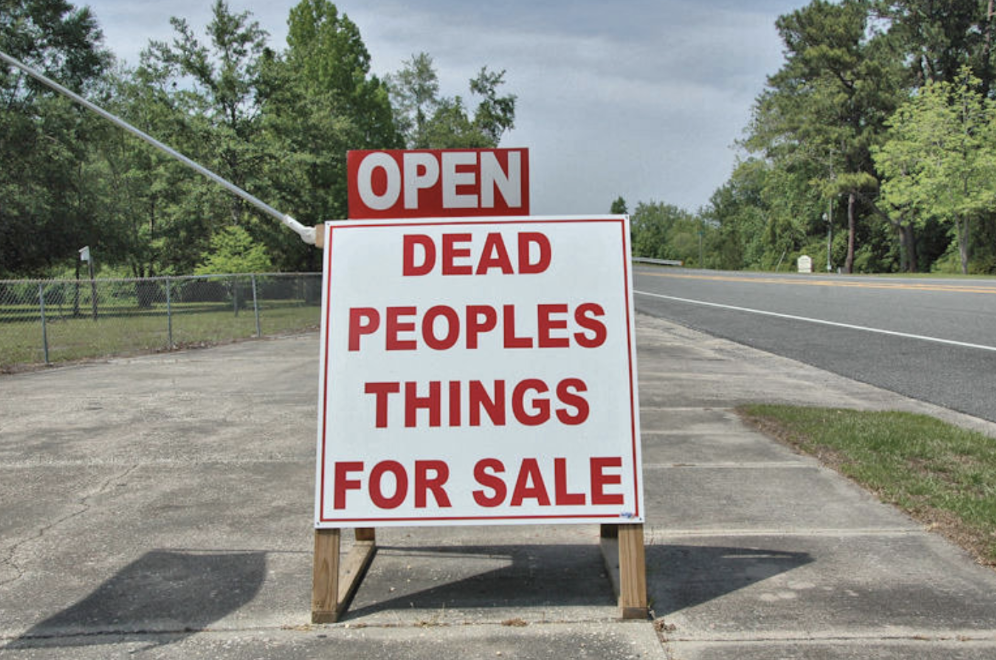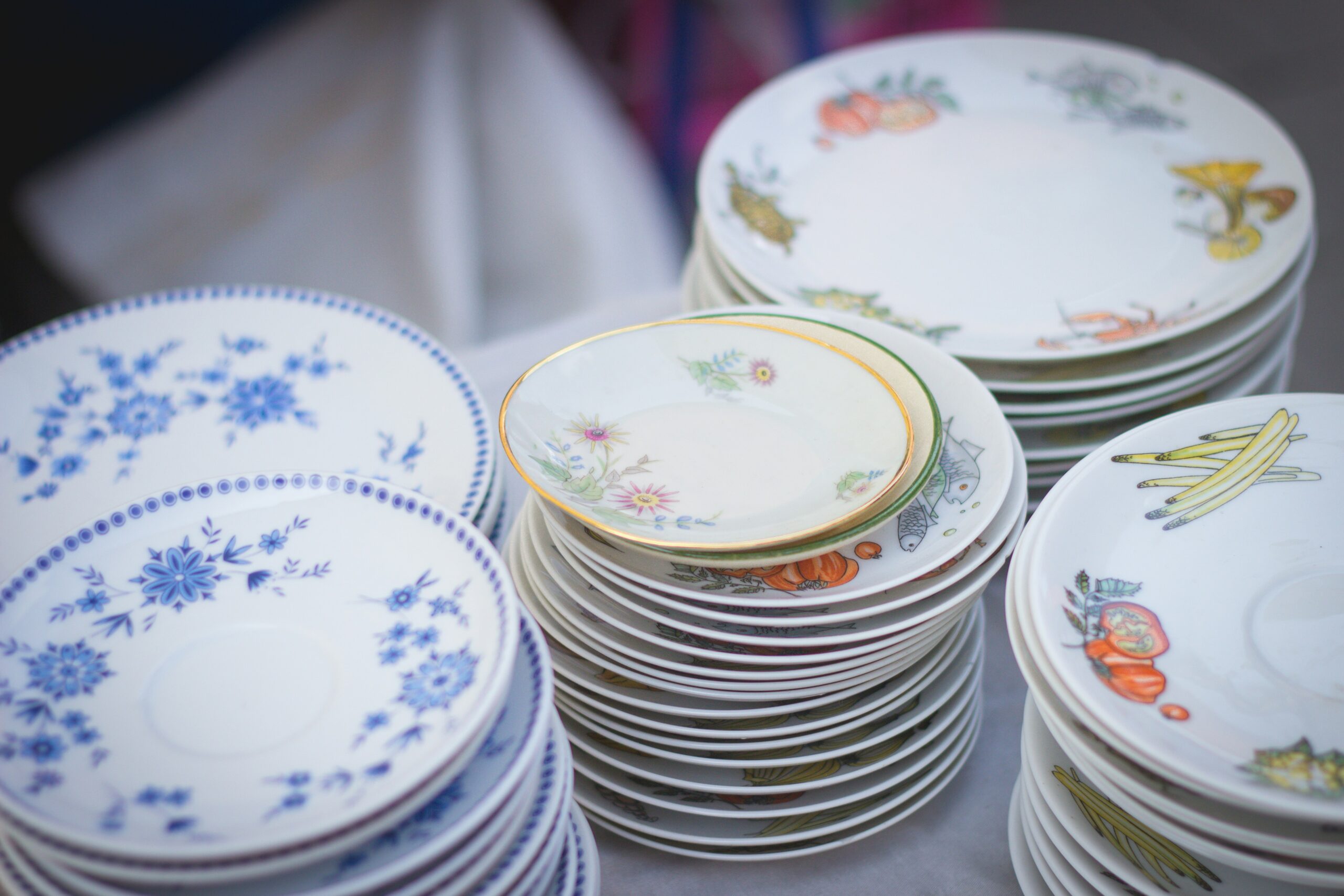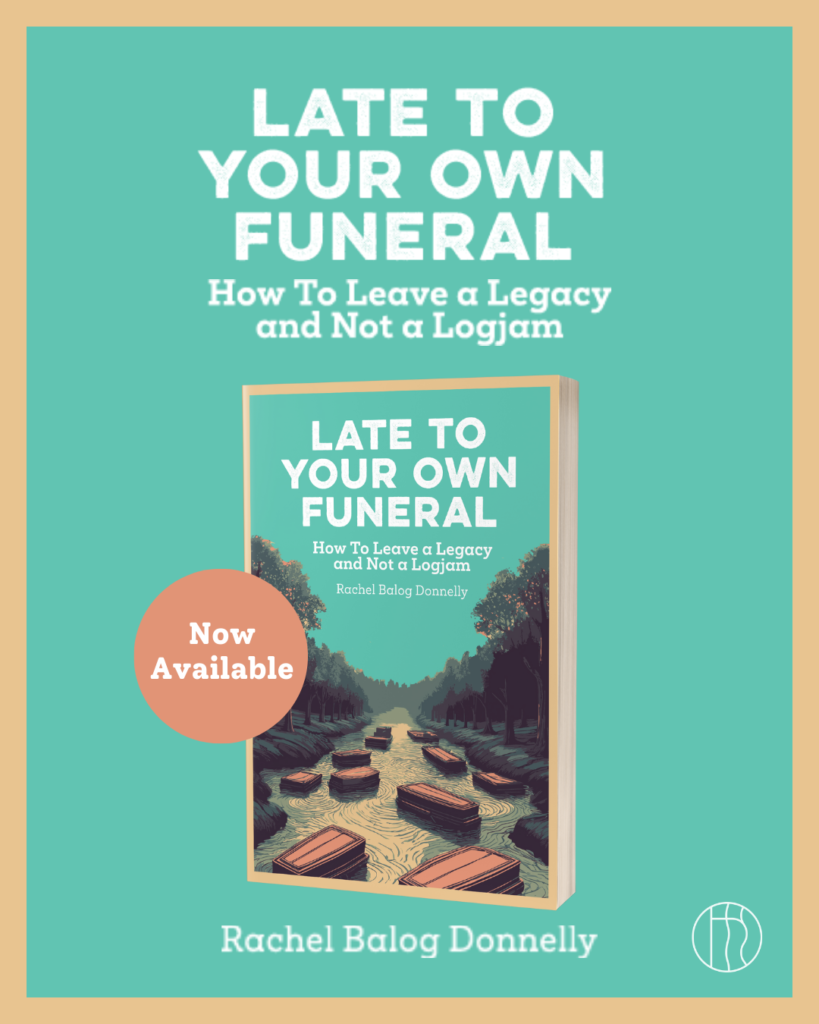As we continue our “Spring Clean Your Legacy” journey, it’s time to talk about your tangible personal property, aka your stuff.
Recently, I wrapped up a mammoth estate cleanout project for a client who served as the executor of his uncle’s estate. His uncle had left behind detailed instructions for the executor to inventory every item, tangible or intangible, real or personal. That meant my team and I spent weeks cataloging over 1,000 items, from pie plates to crystal, and everything in between. After the inventory was complete, the family faced the daunting task of deciding what to keep and what to auction off. It was an emotional journey, but one I’m honored to have helped navigate.
While I am a big proponent of “to each his own”, this project served as a stark reminder that I don’t want to burden my own family with a similar task in the future.
As God as my witness, I don’t want to leave behind a house full of items to sort through, causing them stress and potential conflicts over what to keep and what to let go. Basically, I don’t want a sign like this out front after I’ve died.

Photo by Brian Brown Photography/Vanishing Media
Personal property distribution can often lead to tension and guilt, but it doesn’t have to. As a solution, I recommend embracing the gentle art of Swedish Death Cleaning.
If you haven’t heard of Swedish Death Cleaning, it’s time the two of you met. Author Margareta Magnusson introduced the world to the Swedish concept of death cleaning, which is all about “removing unnecessary things and making your home nice and orderly when you think the time is coming closer for you to leave the planet.” It’s about cherishing your belongings while you have them, then parting with them gracefully.
The ultimate goal of death cleaning is to ease the burden on your loved ones, who are already grappling with grief, by having less stuff to deal with. Swedish death cleaning isn’t a quick fix; it’s a process that takes time and effort.
As Magnusson puts it, death cleaning isn’t just for those nearing the end of their lives. It can happen at any stage, whether you’re downsizing, ending a relationship, or dealing with a family member’s passing.
Here are some practical strategies from Swedish Death Cleaning:
1) Know When to Begin: Magnusson suggests starting around age 65 when you still have the physical ability to declutter but also the time to invest in it.
2) Start with Simple Tasks: Begin with larger, impersonal items like furniture before moving on to more sentimental belongings like photographs.
3) Recognize What to Discard: Evaluate what you truly need and value, keeping only what brings you joy or serves a practical purpose.
4) Ask for Help: Don’t hesitate to involve others in the process, whether it’s for physical assistance or emotional support.
5) Get Rid of Your Things: Donate, sell, or discard items responsibly, ensuring they find new homes where they’ll be appreciated.
6) Save What Matters Most: Set aside a box for personal items that hold value to you alone, signaling to others what can be donated without guilt.
If you’re looking for a way to save memories while decluttering or preserve the value behind your things, my good friends over at Artifcts have created a digital way to organize stuff, capture the meaning behind objects and then choose to give them away, donate, or sell. Plus, they’ve just launched waterproof QR sticker labels to help you connect your physical items with digital details, making organization and decluttering a breeze.
Also keep in mind that AfterLight now offers Legacy Scans, a virtual scan that allows you to preserve and revisit not just the physical space, and the beloved items inside, but the essence of those memories. Using cutting-edge Matterport technology and pricing starting at 40 cents/square foot, our Legacy Scans bring spaces to life, creating immersive 3D models that offer a digital bridge to our past. Click here for a preview and contact us today to learn more about our Legacy Scans service or to schedule your free consultation.
Regardless of how you do it, I hope I’ve inspired you to consider how you will declutter and organize, sparing your loved ones the burden and ensuring your treasures find their rightful place.







